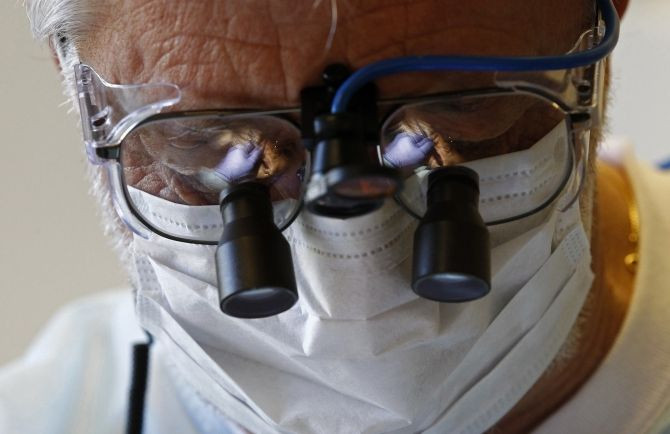Nanotech Dental Fillers Kill Bacteria and Regenerate Decayed Teeth

A team of bioengineers have created the first cavity-filling composite that destroys harmful bacteria and restores tooth enamel lost by decay.
Instead of just limiting tooth decay with conventional fillings, the new material, made with nanotechnology, controls destructive bacteria that co-exist in the natural colony of microbes in the mouth and to rebuild the tooth’s minerals, according to lead researcher Professor Huakun Xu from Maryland University School of Dentistry.
"Tooth decay means that the mineral content in the tooth has been dissolved by the organic acids secreted by bacteria residing in biofilms or plaques on the tooth surface,” Xu said in a news release. “These organisms convert carbohydrates to acids that decrease the minerals in the tooth structure."
After drilling out a decayed tooth, the cavity will still contain residual bacteria, which is impossible to remove, but the primer like the adhesive, which is made up of antibacterial elements that contain nano-size silver particles, can be used to prepare a drilled-out cavities to control the harmful bacteria and then the antibacterial adhesive will be spread into the cavity to stick tight into the tissue of the tooth.
"The reason we want to get the antibacterial agents also into primers and adhesives is that these are the first things that cover the internal surfaces of the tooth cavity and flow into tiny dental tubules inside the tooth," Xu said.
The primary reason for post-filling tooth failure is secondary caries or decay at the restoration margins, but the new primer and adhesive that will kill the residual bacteria that remain after the dentist drilled away the decayed tooth. Additionally, the antibacterial agent, with a base of quaternary ammonium and silver nanoparticles, has a high pH that can limit acid production by tooth bacteria.
Xu said that the prepared tooth would be filled with a composite that contains calcium phosphate nanoparticles that can regenerate tooth minerals.
Scientists are say that fillings made from the new nano-composite, with antibacterial primer and antibacterial adhesive should last longer than the usual five to 10 years, but additional research needs to confirm its longevity.
"The bottom line is we are continuing to improve these materials and making them stronger in their antibacterial and remineralizing capacities as well as increasing their longevity," Xu said.
Researchers have tested the new products by using biofilms from saliva from volunteers, and they are planning to test their products on animal and human teeth.
Published by Medicaldaily.com



























